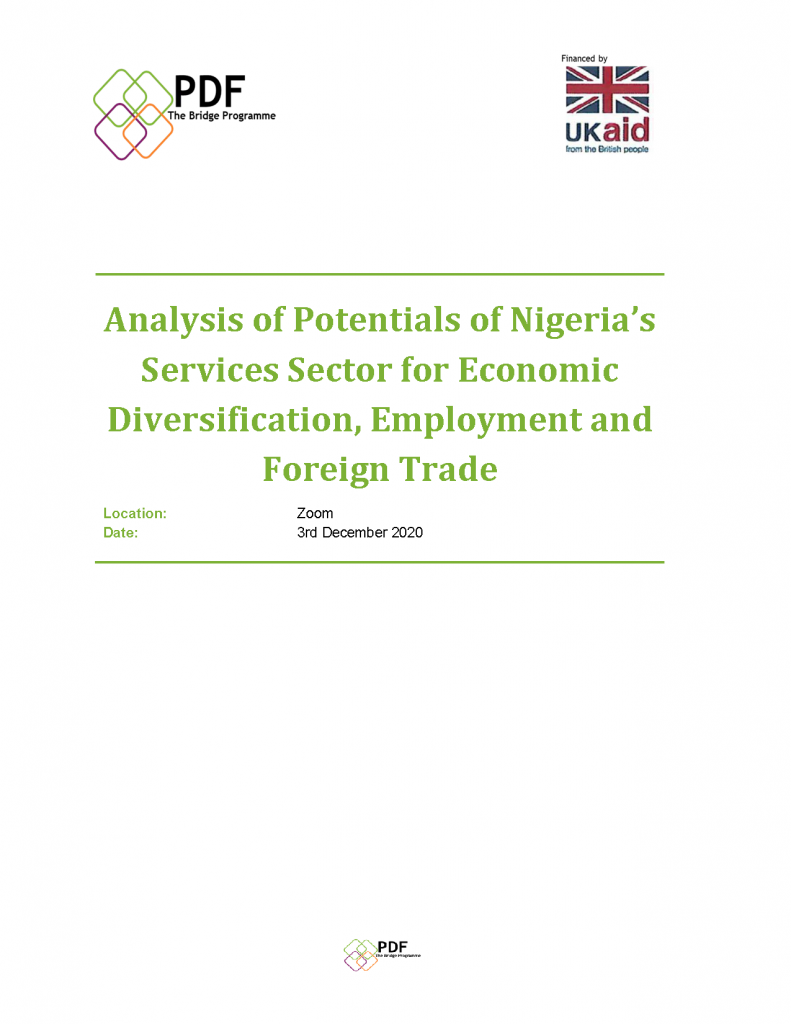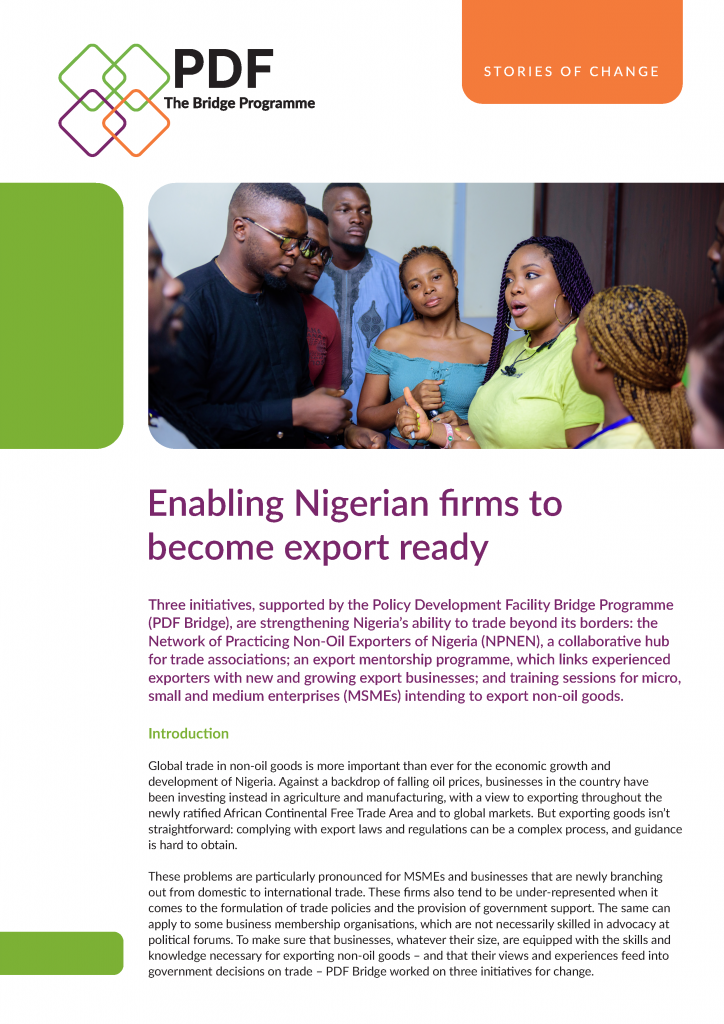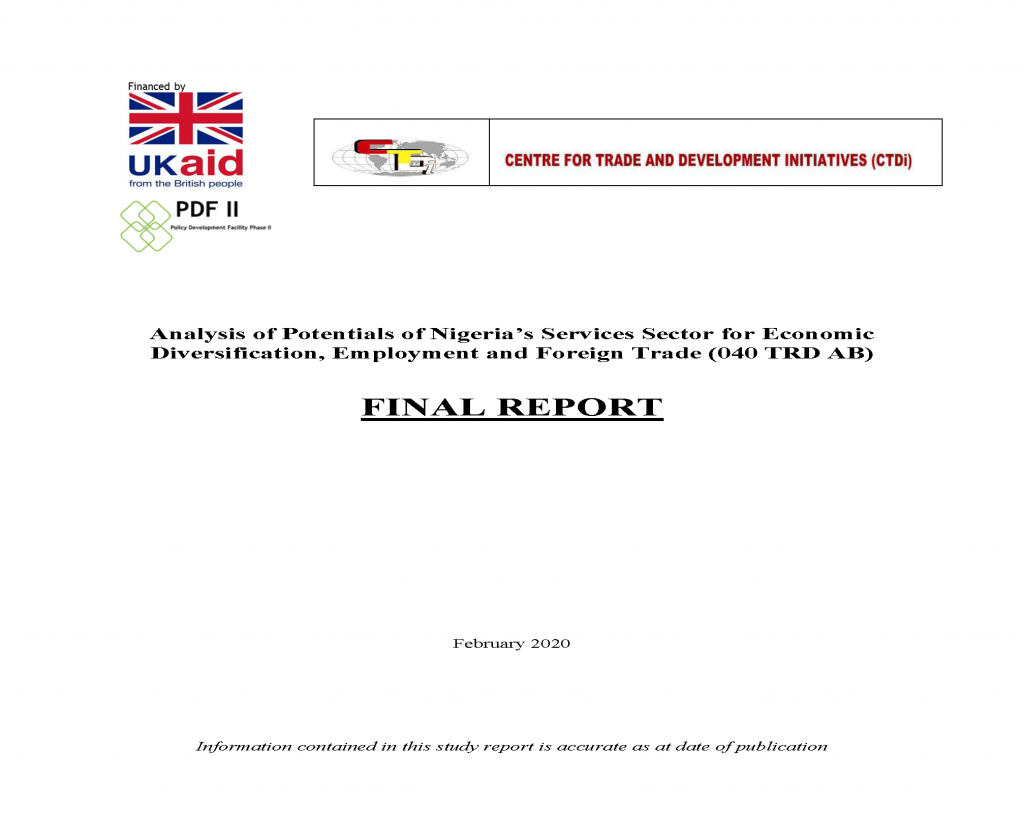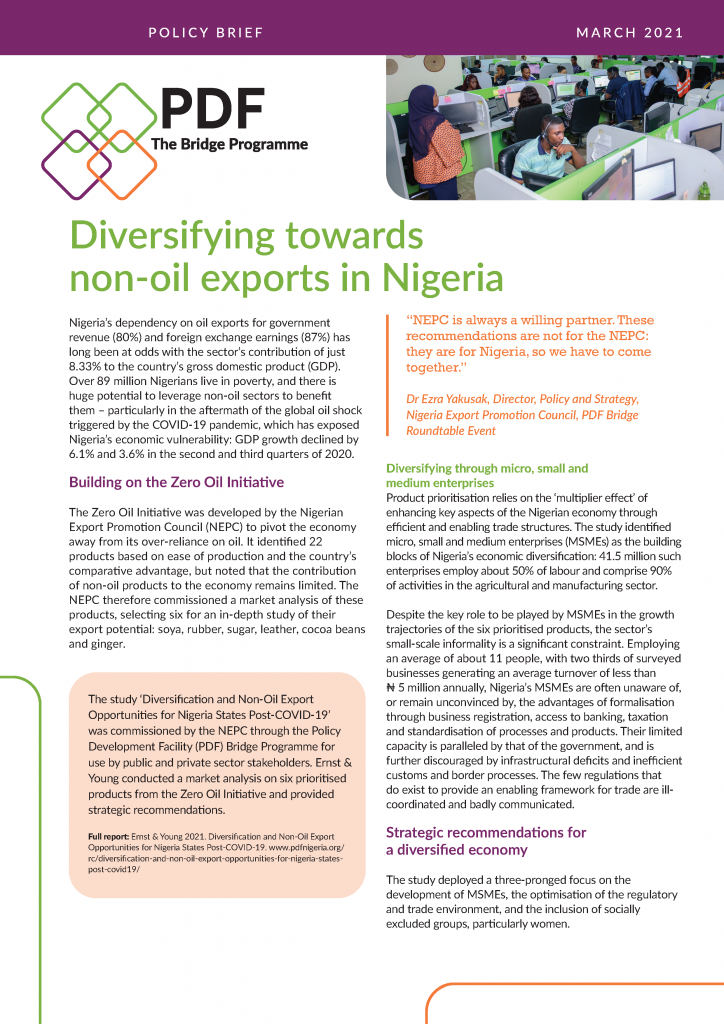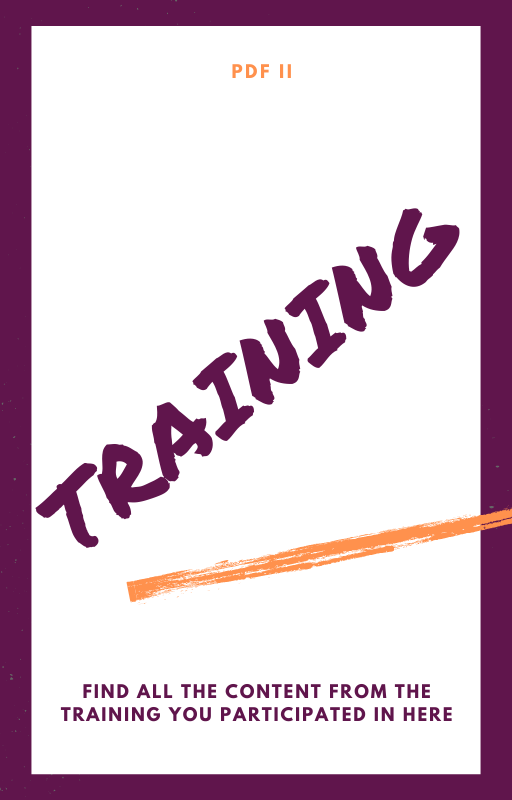Over 80% of Africa’s exports are shipped overseas mainly to the European Union (EU), China and the US, with the continent trailing behind its counterparts in intra-regional trade at 17% compared to Europe at 69% and Asia at 59%. There are huge benefits in establishing a free trade area among the 1.3bn people (accounting for Africa’s population) with a combined GDP of US$ 2.5 trillion from 54 countries. Free trade could create millions of jobs and reduce unemployment among the continent’s teeming youth population as free trade could be a catalyst for structural change and economic development. Read about how PDF II contributed to Nigeria’s decision to sign up to the AfCFTA.
AfCFTA – Nigeria Signs Up
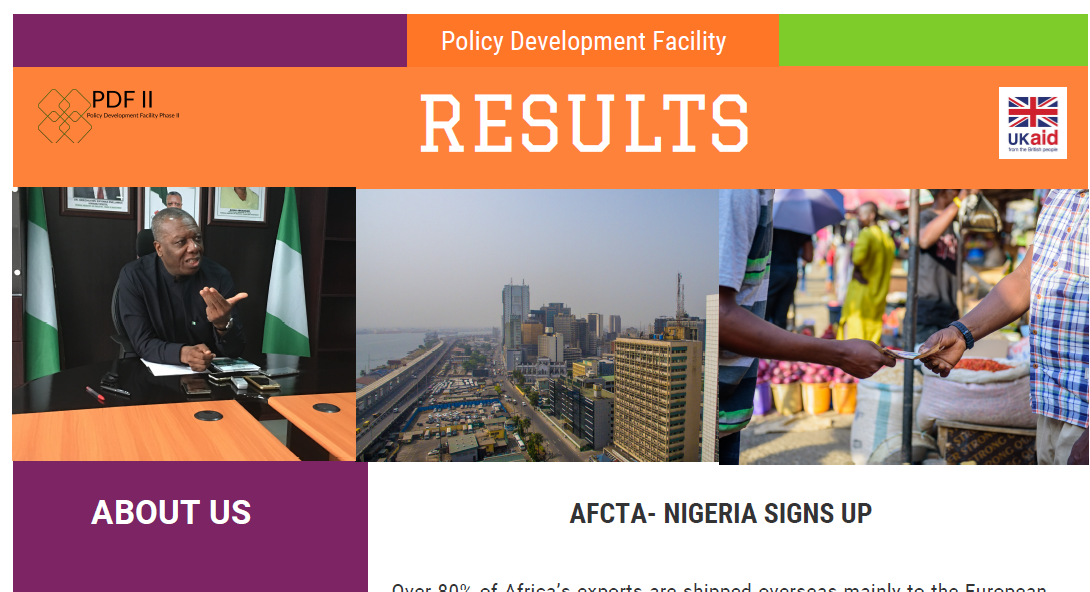
Associated resources
A roundtable event on the potentials of exporting the services sector in Nigeria. At the Roundtable, it was noted that among business owners and exporters, there is little understanding of what services export entails. Many businesses engage in service exports but are not aware of this. Understanding the four modes of services – Cross border trade, Consumption abroad, Commercial presence, and Presence of natural persons – is important for business growth. To achieve this, stakeholders including the NEPC will need to conduct capacity building and sensitisation workshops for exporters, working with relevant business associations.
Against a backdrop of falling oil prices, the Nigerian government has woken up to its economic vulnerability to oil-related disruptions. This underscores the need for diversification to non-oil exports. PDF Bridge supported the drive towards growing non-oil export by supporting under-represented non-oil exporters through three strands of work: strengthening Nigeria’s ability to trade beyond its borders through the Network of Practicing Non-Oil Exporters of Nigeria (NPNEN), an export mentorship programme, which links experienced exporters with new and growing export businesses; and training sessions for micro, small and medium-sized enterprises (MSMEs) intending to export non-oil goods were held on; Market Entry Strategies, Understanding export documentation, Raising Finance for Export, Branding, and packaging for export. In addition, Roundtables were held on;
- Addressing Barriers to Access to Foreign Markets – An analysis of Spices & Herbs, Textiles & Garments, and Leather Products;
- Analysis and Impact of Export Expansion Grant on Export Potential, Market Access and Export Competitiveness in Nigeria;
- Improving Market Access through Digital Trade and;
- Analysis of Potentials of Nigeria’s Services Sector for Economic Diversification, Employment and Foreign Trade;
- Diversification and Non-oil Export Opportunities for Nigeria States Post-COVID19 Study
Africa’s contribution to global trade in services is little with slow growth despite rapid globalisation and liberalisation. The continent’s intra – African trade in services is also relatively little. Nigeria’s services sector contribution to its GDP is huge, representing 55.8 per cent in 2017. It recorded a growth rate of 1.83percent in 2018. Hence, the services sector possesses the immense potential to promote diversification, employment, and growth, even without a current holistic services sector policy. This study specifically mapped and profiled key services sectors; reviewed domestic regulations relating to services; estimated the current and future potentials for export, and provided associated recommendations.
The study ‘Diversification and Non-Oil Export Opportunities for Nigerian States Post-COVID-19’ was commissioned by the NEPC through the Policy Development Facility (PDF) Bridge Programme for use by the public and private sector stakeholders. Ernst & Young conducted a market analysis on six prioritised products from the Zero Oil Initiative and provided strategic recommendations.
PDF Bridge has now developed a policy brief for stakeholders to highlight the key issues and recommendations. The full study can be accessed here.
Businesses that operate in a particular domain are expected to adhere to some rules and regulations. Here is a training material that covers some of these requirements. This does not take the place of legal advice.

